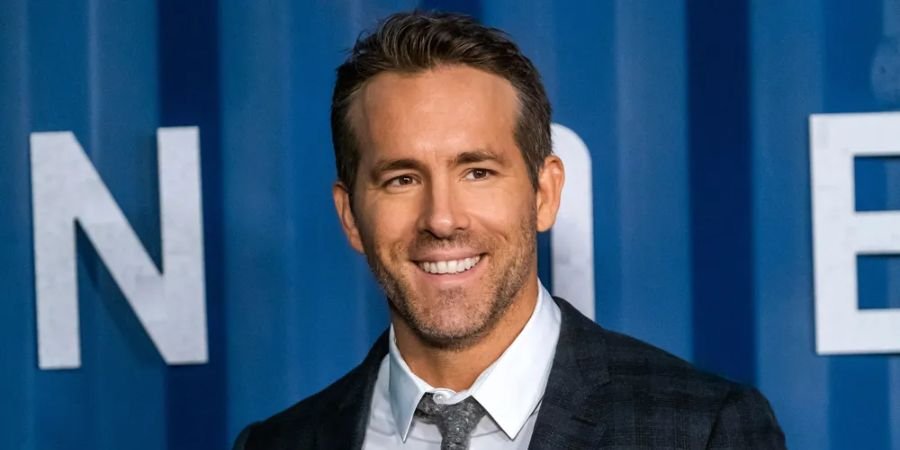Canada may surprise you when you look closely at its entrepreneurial domain. The country stays quiet in many global conversations, yet its leaders continue to build companies that develop how the world works. This space has shaped many Successful Entrepreneurs in Canada, including some of the Top Entrepreneurs in Canada who influence global markets. You also begin to see how the Canadian Startup Ecosystem supports ideas that grow into global case studies.
Think about a single Canadian platform supporting more than 1.7 million merchants across countries and industries. That kind of scale shows how an idea that starts small can move far. It also shows how a focused approach can help a business grow even when the market size looks limited at the beginning.
Let us tell you this. The Canadian business environment provides you with unforgettable lessons if you ever get into the area of how people build businesses, change industries, and create long-lasting values. It is always a good exercise to be patient, to concentrate steadily, and to make decisions in a disciplined way. Besides, it demonstrates the amazing power of the founder’s imagination and the eventuality of their decisions having an impact on the world market.
The following paragraphs will present you with 5 fabulous entrepreneurs from Canada, the companies they affected and the key events that marked their growth, as well as providing the kind of mindsets that can lead and motivate you to the success path. They are the Most Successful Entrepreneurs in Canada according to Many and Their names are mentioned in the Top Canadian Entrepreneurs Lists and are the topic of many case studies regarding Canadian entrepreneurs.
Entrepreneur #1: Tobias Lütke – Building commerce for millions
Tobias Lütke co-founded and serves as CEO of Shopify, based in Ottawa. The story begins with an online snowboard shop for which Lütke built his own software platform around 2006. This shift of focus resulted in Shopify and the present day scenario of the platform being the backbone of a vast number of businesses globally. Many people studying Who are the top entrepreneurs in Canada often start with Lütke because of how he transformed eCommerce.
The fundamental observation: he realized that the construction of the infrastructure for other merchants could be the long term retail idea. If you are a writer or creator, the lesson is this: find the underlying platform or tool that others need and build that rather than just one product. Lütke emphasises product and user experience, and his company’s growth reflects that focus. His journey has become a core part of Canadian entrepreneurs success stories and contributed to shaping the Canadian Business Leaders landscape.
Net worth: His estimated net worth has been reported around US $12.3 billion (2022) according to Wikipedia. Some other sources suggest values ranging up to ~$20 billion in 2025.
Key milestones:
- Co-founded Shopify in 2006 after shifting from an online snowboard shop.
- Took Shopify public in 2015, enabling massive global growth.
- Possessing a small ownership interest of about 7% but having the main voting power which is around 40% through the dual-class stock issue.
- In 2018, he was honored with the Meritorious Service Cross in Canada for his role in the technological sector.
Entrepreneur #2: Michele Romanow – Redefining funding and growth
Michele Romanow is a Canadian Tech Entrepreneur, investor and television personality. She co-founded Clearco (formerly Clearbanc), which provides revenue-based financing to startups. Romanow’s model presents a challenge to the conventional equity-funding method. She is often cited among Famous Entrepreneurs in Canada and included in lists of Successful Entrepreneurs in Canada.
The main point for the content leadership or writing profession is: rethink your funding strategy for growth. There may be no need for you to give up equity at all if you set up revenue-sharing or take other forms of financing. Besides, Romanow illustrates that you can start different businesses and put money into others, thereby creating a ripple effect. She is a modern entrepreneur in Canada with a flexible, technology-oriented, and financially aware profile. Her work has influenced many Canadian Business Leaders who study Entrepreneurship in Canada for strategic direction.
Net worth: Estimates vary considerably. One source (TheCityCeleb) lists a figure of CAD $187 million (~US $140-150 million) in an older report. Other more conservative data places her net worth at ~US $155 million in 2025.
Key milestones:
- Co-founded Clearco (formerly Clearbanc), a financing company that specializes in non-equity funding to startups.
- Started earlier businesses Buytopia.ca and SnapSaves which are examples of serial entrepreneurship.
- Opened her public profile and brand by being an investor on the TV show Dragons’ Den (Canada).
- Promoted women entrepreneurs and underrepresented founders through her work with investment focus.
Entrepreneur #3: Tara Bosch – Health-conscious sweets that scaled
Tara Bosch founded SmartSweets, a low-sugar candy company based in Vancouver. Bosch began by experimenting with candy recipes in her kitchen while at university and turned it into a multimillion-dollar business very quickly. Her story is often mentioned when discussing Most successful Canadian entrepreneurs, with SmartSweets becoming a modern reference for Successful Entrepreneurs in Canada.
For content creators or entrepreneurs, Bosch’s story illustrates three things: start small, test directly with a niche audience, and scale when you find traction. She identified a gap (people wanting treats with less sugar) and executed. Her story shows that you do not always need high tech to succeed; you need insight, quality execution and scalable systems. Many consider her one of the Best entrepreneurs to follow in Canada for consumer goods founders.
Net worth: Reported as approximately US $200 million in one article, tied to the sale of her company.
Key milestones:
- Founded SmartSweets, a low-sugar candy company, starting from a debt of about US $105,000 and a 2009 Honda Fit.
- Rapid revenue growth: from US $2 million in year one to US $125 million in year four.
- The company was acquired by TPG Growth for about US $360 million.
- Demonstrated how a consumer-goods startup in a niche (health-conscious candy) can scale quickly with strong insight and execution.
Entrepreneur #4: Joanna Griffiths – Women’s intimates disrupted
Joanna Griffs founded Knix in 2013, a brand that reinvented intimates with leak-proof underwear and inclusive sizing. The company also emphasised real-people marketing and broke industry taboos around periods and incontinence. She is recognized among Canadian Entrepreneurs, especially in discussions about Entrepreneurship in Canada, due to her direct approach to branding and community building.
For anyone in content or brand storytelling, this is gold: Griffiths built an emotional connection, addressed stigma, and created a conversation around the brand. The lesson: when you speak to human needs deeply and build community around your product or service, you unlock growth. Another lesson: you can disrupt even mature industries when you bring authenticity and user-centred design together. Her work continues to inspire Successful Entrepreneurs in Canada who aim to build human-first brands.
Net worth: Exact personal net worth is not clearly published. However, her company Knix was valued at about US $400 million when 80 % was sold in 2022.
Key milestones:
- Founded Knix in 2013, initially via a Kickstarter campaign, focusing on inclusive, leak-proof intimates.
- In 2022 sold 80 % of Knix for approximately US $320 million, one of the largest exits by a female founder in Canada.
- Expanded product line from underwear into bras, swimwear, shapewear, lounge wear – strengthening the brand.
- Founded the Knix Fund, committing US $1 million over three years to community and empowerment programs.
Entrepreneur #5: Anthony Lacavera – From telecom to media and investment
Anthony Lacavera is the founder and chairman of Globalive and earlier founded wireless service provider Wind Mobile (now part of Shaw) which he sold in 2016 for about 1.6 billion USD. He has evolved into a venture capitalist and media figure. He is often listed among the Top Entrepreneurs in Canada, with many referring to him when discussing Famous Entrepreneurs in Canada and Successful Entrepreneurs in Canada.
The relevance for you: Lacavera shows that entrepreneurship is not always one stage. You build one big venture, then you can turn into investor, mentor, media voice. His model shows the pathway of scaling, exiting, and reinvesting. If content leads or writers think of first creating something valuable, then building reputation, then creating platforms that serve others, this is a model worth watching. His contributions have influenced the Canadian Startup Ecosystem, especially through media and investment.
Net worth: One source lists an estimated net worth of at least US $919 million as of 2025-11-03, based on holdings reported.
Key milestones:
- Founded Globalive in 1998 with a small business loan (~CAD $25,000) and built into a telecom and investment company.
- Launched wireless provider Wind Mobile (later sold to Shaw) and other telecom assets.
- After exit from telecom operations, shifted to venture capital and media investment, influencing Canadian startup ecosystem.
- Advocates for Canadian-owned innovation and has a media platform through Globalive Media to support entrepreneurial storytelling.
Key lessons from Canada’s top entrepreneurs
What threads tie these 5 stories together?
- All of them began by addressing actual issues or undersupplied markets (Tara with the sugar-free candy, Griffiths with the underwear for real bodies, Lütke with the eCommerce tools).
- They grew by building platforms or brands that were able to expand geographically and user-wise.
- Instead of noise, they focused on design, user experience, and authenticity.
- They applied funding and partnerships strategically (Romanow’s financing model, Lacavera’s telecom exit) to grow.
- They present ways: product founder, platform builder, disruptor, investor.
No matter if you are producing content, developing a service, or managing a brand, you can take these lessons: first, identify a real need; second, keep the users in mind at all times; third, expand carefully; and finally think if you could actually help others or if you were just making a product instead of a platform. These stories show why these founders remain among the Most successful Canadian entrepreneurs.
Conclusion
The story of Top Entrepreneurs in Canada is not just about big exits or billion-dollar companies. It is about building meaningful ventures from real insight, connecting with people, and scaling with purpose. If you are in content, writing, leadership or brand building the takeaway is clear: you have the ability to start something in your own domain, grow it by listening to your audience, and evolve into a platform or trusted voice.
Think of the journeys of Tobias Lütke, Michele Romanow, Tara Bosch, Joanna Griffiths and Anthony Lacavera as more than case studies. They are maps you can adapt for your own path. The key takeaway: pick one genuine problem you care about, build something around it, treat the users or audience like humans, scale thoughtfully, and keep your purpose clear. Your work will matter.










